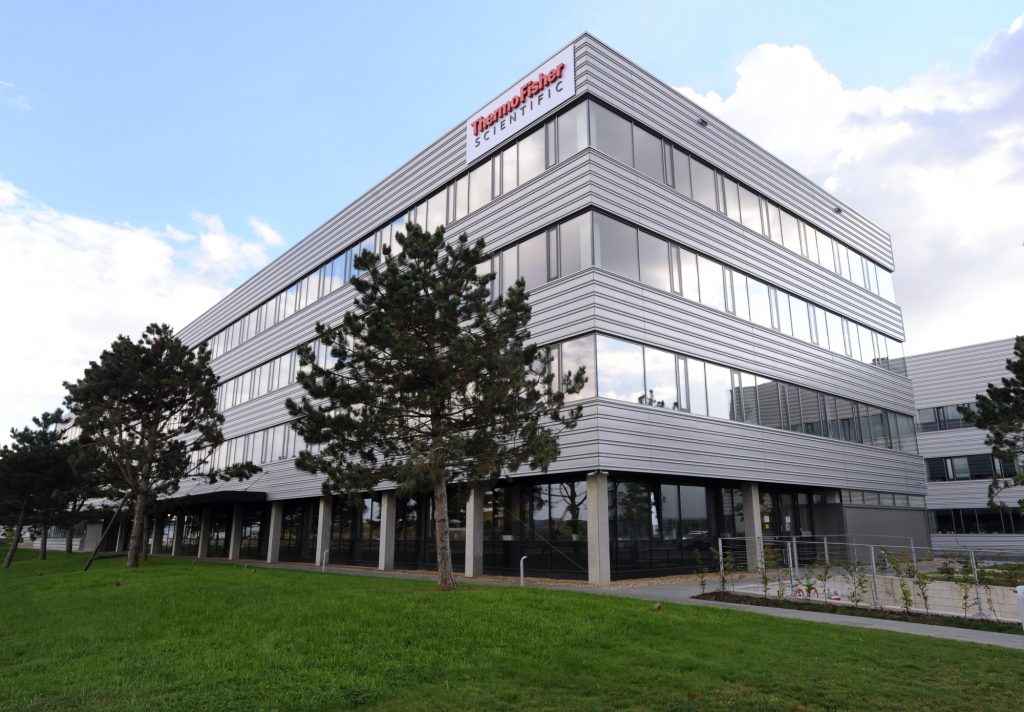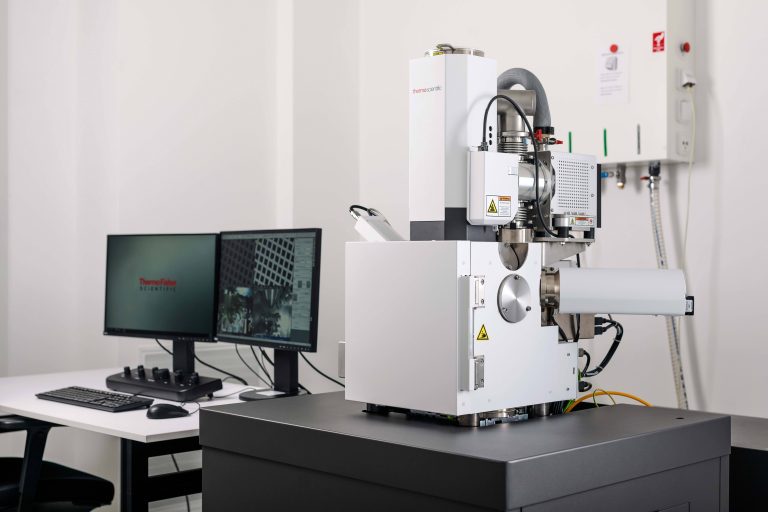Brno’s electron microscopy industry is thriving. Brno is the home to three electron microscope manufacturers, whose combined production accounts for roughly one-third of the world’s total electron microscopes. Photo Credit: Thermo-Fisher Scientific Brno
Brno, June 21 (BD) – Electron microscopes are advanced scientific devices that cost millions of dollars. Most people do not come into contact with them directly, but they are used in research and development (R&D), manufacturing, and quality control in many products and sectors, including vaccines (notably Covid-19), microchips, electric car batteries, advanced materials, and photovoltaics.
The first electron microscope was brought to Brno in 1947, with the help of the United Nations Relief and Rehabilitation Administration (UNRRA) after World War II. In 1950, scientists in the Electron Optics Laboratory at the Czechoslovak Academy of Sciences led by Armin Delong made the first Czech electron microscope. Now just three Brno companies, Thermo-Fisher, Tescan, and Delong Instruments, account for nearly one-third of global production.
The largest local manufacturer in Brno, Thermo-Fisher Scientific, reported record sales of CZK 16.2 billion last year, becoming one of the largest Czech exporters. The company’s pre-tax profit reached CZK 716 million, and the corporation expects to continue growing this year, increasing R&D investments and recruiting significant numbers of new employees.
According to Petr Střelec, General Manager of the Brno branch of Thermo-Fisher, the company supplies universities around the world, as well as electronics manufacturers, car manufacturers, and NASA. The vast majority of the devices are exported outside the Czech Republic, with Asia as the largest market. Growth in exports continues in spite of the current complicated economic and geopolitical situation in the world,

The largest exporter in South Moravia, Thermo-Fisher is also an important investor in electron microscopy R&D in Brno, at over CZK 1 billion in 2021. Last year, this led to the expansion of its development portfolio to include mass spectrometers. “These instruments with extremely high sensitivity determine the chemical composition of samples at the atomic or molecular level,” said Střelec. “They are routinely used in new drug research, detecting trace contamination in rivers or air, food analysis, forensics, doping tests and space exploration.”
Last year, Thermo Fisher took on 465 extra staff, bringing the total number of employees to over 1,500. Most of the new staff were in development and production engineering departments, as well as production. The majority of these were technically oriented and highly educated professionals, but the export focus and the current situation on the materials market meant that logistics and supply chain specialists were also in high demand.







